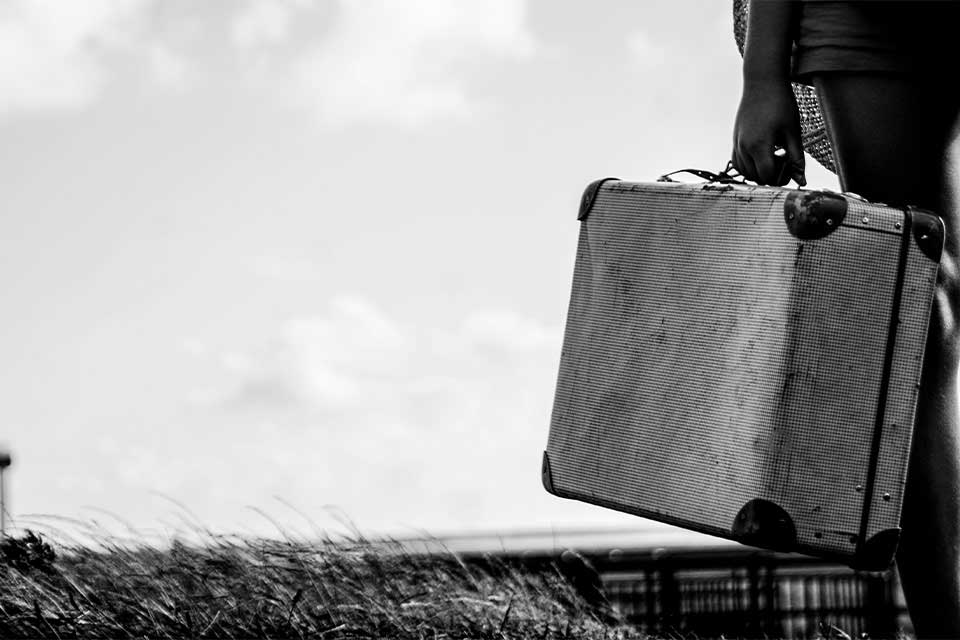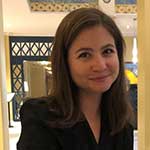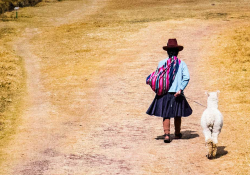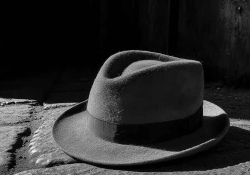WLT Student Translation Prize – Prose

In this excerpt from María Elena Morán’s Premio Café Gijón–winning novel, Volver a cuándo (Siruela, 2022), a woman in a refugee camp takes stock of her belongings. Volver a cuándo is told from the alternating perspectives of five family members, each reckoning with the disillusionment of the failed revolution and the ever-worsening conditions of Venezuela in the fallout from the Chávez era. The novel will be published in English in 2026 by Knopf in Madeline Jones’s translation.
Remember When (an excerpt)
The thing is, your daughter doesn’t want to speak to you, okay? And that’s it, Graciela finally said, tired of sugarcoating and handwringing, though just a few minutes earlier, her excuse had been that the kid couldn’t talk because she was playing on the computer, which was a lie because before that she’d already said the power was out, and even before that lie she’d made up another, saying the girl was in the bath, because, who’d have guessed, there was water coming out of the shower head, a total improbability since it was Monday and the water was never on on Mondays; in reality, it had been two months since the water ran from anywhere, any day of the week, and at least six since that shower head had seen a drop, and finally, out of excuses, Graciela cracked: Elisa is rebelling and doesn’t want to talk to you, and I’m not going to make her! And so Nina insisted the girl pick up the phone—I’m her mother and she’s not in charge—and Graciela rebuffed her with cutting indifference, you’ll work it out with her later, I don’t know what else to tell you because she says mothers don’t abandon their daughters and what can I say if that’s the truth. And it was in the middle of this rant that, on the other end of the line, in that little corner of Brazil called Pacaraima, Nina started to smell something burning and heard screams of coño, they’re burning us down! they’re burning us down! and she saw in the distance people batting at flames rising out of the Coleman tents, which for the last two days had been her room, her house, her hotel, and now it was starting to look like an oven. I’ll call you back, Mami—and she ran, making her way through the desperate mass of people that was gathering up the few charred bundles that were left of their baggage¾their whole existence¾for the coming days or months or years.
Chama, I’m getting out of this shithole, I’m not staying where I’m not wanted, a woman from Valencia, her tent neighbor, said to her as she joined the stampede that was crossing the border back to Venezuela, where the inferno was an inferno, but at least it was theirs, constitutionally granted, where at least they had the right to complain, though even that had been dwindling lately, with all the excuses and hurdles they put up for the poor. It all stank of authoritarianism. Nina tried to convince her this was just a snag and that the other hundreds of people who had helped them counted for much more than the five fucking heartless assholes that would set fire to an entire camp full of kids and teenagers waiting for asylum. She tried but not that hard because she didn’t think she could take on the weight of convincing someone else of this venture that was already looking more like a tragedy from the start. She had seen the hate in those eyes, isso aqui não é Venezuela, porra! . . .
Nina tried to convince her this was just a snag and that the other hundreds of people who had helped them counted for much more than the five fucking heartless assholes that would set fire to an entire camp full of kids and teenagers waiting for asylum.
She reviewed her home-in-a-bag and saw that, apart from the plastic bags and the three little rolls of toilet paper that the flames had targeted, the rest of her stuff seemed to have survived. Her sandals were still ugly, but intact. The three pairs of jeans, one jumpsuit, five flannels, five pairs of tights, three bras, and the only dress, her favorite one that had seen her through a ridiculous number of nights salsa dancing, all smelled horribly of kerosene; her fifteen pairs of underwear barely made it. She brought so many because the one thing she could not stand was walking around with dirty underwear, and out of the same compulsion she’d put them in a ziplock bag, so at least they didn’t smell like anything. The plastic folder where she kept the most expensive, the most labor-intensive items, like her clean background check and birth certificate, had melted a little bit at the corners and pulling them out would require tweezers now. Her boy-scout kit, with a lantern, knife, tinderbox, matches, cellphone charger, and tiny dish and utensils set, was still in perfect shape, like her vanity kit at the bottom of her backpack, where the bath soap, shampoo, pads, razors, a bit of makeup and even condoms, just in case, were unharmed. She checked the side pockets and saw that her sunglasses were still there, solid, but a few degrees away from turning into a mass of melted plastic; Elisa had bought them for her a few birthdays ago, after saving up for a long time; her kit with cuticle clippers and a nail file, psychologically indispensable for any nail biter; a retractable pen and matching notebook of important bits of information, addresses and phone numbers, though she’d memorized everything like it was still the nineties; the keys to the house that, more out of sentimentality than logic, Nina stubbornly insisted on keeping along with the other necessities, minutiae one could live without, but that made her feel like herself and not just a line on a UN Refugee Agency spreadsheet.
They weren’t garbage, they weren’t garbage, they weren’t garbage.
Watching the smoke . . . she wondered how it could be possible that their contempt smelled the same as the burning private lots back home in Maracaibo, those abandoned lands where people would sometimes toss and burn garbage, surrounded by cinderblock fences with gaps and holes, because there was always someone around to steal cinderblocks to build a little house so their family wouldn’t have to put up with the smell. The smell of all the piling garbage when the trash collection stopped, but soggy or burned, in the end garbage all smelled the same, whether it came from poor people or rich people or the corner restaurant or the PSUV Party headquarters or the bathroom in the humanities department, garbage is garbage, Nina thought, and just like the lots back home, the Roraima camp was up in flames now too. But Roraima wasn’t garbage, and they weren’t garbage, they weren’t garbage, they weren’t garbage, and even as she thought this, for a few seconds she let herself be carried away by the horrible idea that the charred, foul-smelling air was simply their own wake, that they’d brought some penetrating odor with them, now intrinsic to their sweaty bodies, which had arrived, hungry and scared, without being invited. And maybe by lighting up their improvised camp at the mouth of the border, the people who wanted them gone could incinerate the rot, this rot that they—the improbable throng of people to which she now belonged, a diseased hoard that cried out in Spanish for food and shelter and the UN and Operação Acolhida—had brought with them.
Translation from the Spanish
Editorial note: Published by arrangement with Alfred A. Knopf. All rights reserved. María Elena Morán’s novel Remember When is forthcoming from Knopf in summer 2026.
















